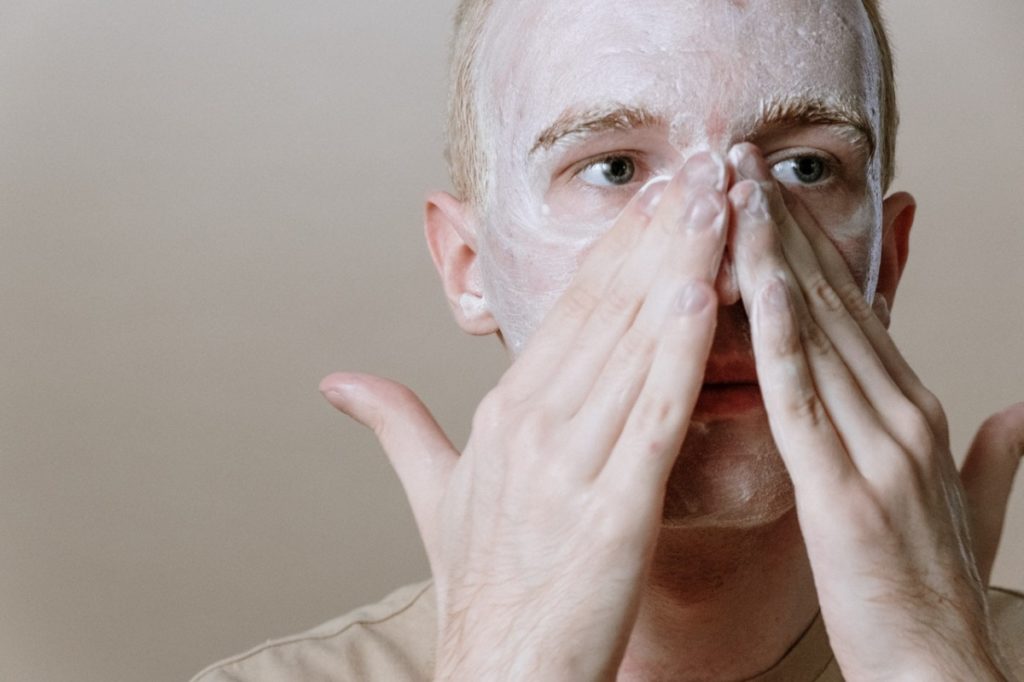Men enjoy a wide degree of flexibility when it comes to matters of hygiene. We can rock a full beard or go for the clean-shaven look. Some obsess about the nuances of sartorial style; others throw on whatever they can grab from the closet before heading out.
This really is a matter of personal preference. However, the conventional image of a “manly man” still leans mostly towards the rough and rugged end of that spectrum.
As a result, the average man neglects their hygiene and cleanliness. That’s not acceptable. Yet you can’t expect every man to turn things around by the force of will alone.
Unequal standards
First, let’s address this common assumption: that men are naturally inclined to be slovenly.
In an experiment, participants were asked to assess random photos of rooms in different states of disorder. Regardless of gender, they agreed on which rooms were messy and which ones were tidy.
However, when the participants were asked to assess rooms labeled as “John’s” or “Jennifer’s,” men and women alike held the female-owned room to a much higher standard of tidiness.
These research findings can be attributed to different factors. Maybe females anticipate this strict social judgment. Maybe they are more willing to put in the effort towards tidying up or have a lesser tendency to procrastinate than men.
But what’s clear is that men are just as perceptive of the difference between dirtiness and cleanliness.
It’s not in the male nature to be blind to hygiene or the need to clean up. We’re just generally allowed to get away with doing less in this regard.
Changing historical values
This doesn’t change the fact that each individual will have a different definition of what it means to be hygienic. A toddler’s caregiver will focus on aspects of tidiness, while a doctor’s greatest concern might be keeping a sterile environment.
In fact, our standards for hygiene have fluctuated throughout history.
Modern medicine teaches us how germs spread disease. That influences our behavior, even before the pandemic had everyone wearing face masks and carrying hand sanitizer.

Our public spaces are designed with bathroom partitions covered in water-resistant coating to minimize dirt and bacteria accumulation. Advances in plumbing mean that we don’t use medieval-style open sewers or cesspits for our waste management.
But once upon a time, people did practice hygiene differently. Our ancestors didn’t brush their teeth every day. They did clean them, but certainly not with toothpaste or mouthwash as we know these products today.
Neither, for that matter, did people in past centuries bathe every day. Changing clothes was often seen as an effective way to stay clean.
When they did feel the need to wash themselves with water, it was commonly considered acceptable to share a bath in the public bath-house.
Yes, we’ve held different views of hygiene over the centuries. But those have been influenced by prevailing beliefs, limited by the knowledge of the times.
What stands out is that regardless of era or the human condition, we’ve strived to keep ourselves and our surroundings clean. Upholding contemporary best practices is a virtue, and here, the evidence shows that modern men fall short compared to women.
Forming the right habits
Any man can begin with a checklist of things to do. Cleaning your shoes, ironing your shirt, trimming your nails, and taking a shower are all part of the daily routine. At your option, shave or maintain your facial hair in a presentable condition.
The problem with that approach is it doesn’t necessarily address the root cause of sloppy behavior.
Men who tend to ‘let themselves go,’ for want of a better term, are generally exposed to negative influences. Maybe they feel too busy to devote the necessary time, or their peers mistakenly equate caring about hygiene with being effeminate or weak. Their standards drop, and there’s no one to hold them accountable.
If you or a man you know is struggling to improve hygiene against those influences, the practice of deliberate habit formation can help.
Good habits can be established by repetitive action in the same context. Use a behavioral cue to trigger the desired response repeatedly, and it will become automatic over time. You won’t have to think about it, making it easier to practice hygiene each day.
You can also try to link a desired behavior to existing habits. After brushing your teeth, for example, you can trim stray facial, ear, or nose hair. Or if you’re in the habit of setting aside the clothes you’ll wear the next day during evenings, tack on the practice of tidying up your room a little.
Through habit formation, you’ll make it easy to act on what you already perceive as insufficient hygiene and cleanliness in your life.

